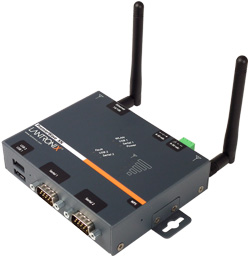Android, Blackberry RIM, Apple iOS,
The decision of Pentagon or the U.S. Defense Department last week to seek new contracts for its mobile phone needs brings to focus software security. Pentagon has a current contract with Research in Motion, the maker of the BlackBerry, but expressed openness to try other units such as those of iPhone and Androids.
Pentagon preferred BlackBerry because of its security features and encryption, so a look at security of these smartphone software would be appropriate now.
Android Feature Overview
Android is a modern mobile platform that was designed to be open for everyone. Its applications make sure of advanced hardware and software as well as local and served data exposed through the platform to bring innovation and value to consumers.
Building blocks of the Android platform include:
Android Feature Overview
Android is a modern mobile platform that was designed to be open for everyone. Its applications make sure of advanced hardware and software as well as local and served data exposed through the platform to bring innovation and value to consumers.
Building blocks of the Android platform include:
- Device hardware compatibility to a wide range of kinds like smart phones, tablets, and set-top-boxes.
- Operating system built on top of the Linux kernel with all device resources like camera, GPS data, Bluetooth, telephony, network are accessed through the OS
- Its applications are mostly written in Java programming and runs in Dalvik virtual machine.
- Pre-installed applications like phone functions, email, calendar, web browser and contacts.
- Google Play access for third-party applications.
- Protect user data
- Protect system resources and network
- Provide application isolation
- Open application from third party sources which may access user's information without protection.
- Certain third party application can access premium functions without user intervention. Inconvenient and possibly costly for the user.
- The free and open application feature can cause certain programs that are viruses to access user main OS by simply downloading untrusted sources.
Blackberry OS 7 is the latest version used for Blackberry devices. It is a proprietary mobile operating system developed by RIM for its Blackberry line of smartphone handheld device. The OS provides multitasking and supports specialised input devices that have been adopted by RIM for us in its handhelds, particularly the trackwheel, trackball, and most recently the trackpad and touchscreen.
Blackberry is best known for its native support in corporate email, wireless activation and synchronization with Microsoft Exchange, Lotus Domino or Novell GroupWise email.
Primary System Features of Blackberry OS
- Basic telephony functions
- Wireless connection with GPS, mobile network, Wi-Fi, Blackberry Tag sharing via NFC communications.
- Blackberry specialized applications like BlackBerry Travel, Blackberry App World, Blackberry Messenger, BBM Protect, BBM Balance and BBM Music.
- Entertain functions like BBM browser, BBM Music, and video player.
- BBM Bridge Application which separates personal and private data from interconnecting Blackberry devices. It is open for encryption and authentication before connection and access are different depending on BBM connectivity features between the devices.
- Protected Wi-Fi connections for unsecured networks. The BBM device has negotiating encrypted connection before establishing any internet connection.
- Anti-spam email for blocking spam messages for BBM device security.
- Attachment rendering for emails with attachment send to the user. This is rendered to a format which is designed to protect the device from potentially damaging attachment code
- Blackberry Smart Card reader which is used in proximity to a Bluetooth-enabled Blackberry smart phone or Bluetooth-enabled computer, which permits the authentication between devices using Bluetooth.
iOS Platform Features
iOS is a mobile operating system developed and distributed by Apple In. It has been extended to support other Apple devices such as the iPad and the Apple TV. In contrast with Microsoft's Windows Phone and Google's Android, Apple does not license iOS for installation on non-Apple hardware.
iOS has several unique features only seen with devices running this system
- Basic telephony functions
- Homescreen known as SpringBoard displaying application icon and dock at the bottom of the screen
- SpotLight search located at the leftmost page of the homescreen for search through media, applications, emails, contacts, messages, etc.
- Folder system which allows the user to compile several applications in one category with editable titles.
- Safari web browser
- FaceTime application
- Photo Booth
- Siri
- iTunes
- Secure Boot Chain in boot-up process
- Regular updates for system software security
- Apple signed authentications for third-party applications
- Verified applications are enforced with security measures to prevent compromise
- Hardware security features for speed and power efficiency
- File Data Protection
- Passcodes for the data protection
- Network for VPN, Bluetooth, Wi-Fi
Apple iOS is a tiny closed platform exclusive only to devices running this operating system. Apple decides which are included and allows in the Apple Store increasing the security and lessening the risk of allowing malwares to affect iOS devices.
Among the Three?
The Android may be vulnerable because of its open-type platform compared to exclusive access in BlackBerry and iOS devices.
Still, be cautious, no system is perfectly safe when it comes with malware, hacking, and similar stuff. So having system security application or program and enough knowledge in related information is really handy.
By Vittorio Hernandez
Make sure to let me know in the Comments below or on our Facebook page how you’ve got on with it, or you have any questions

No comments:
Post a Comment